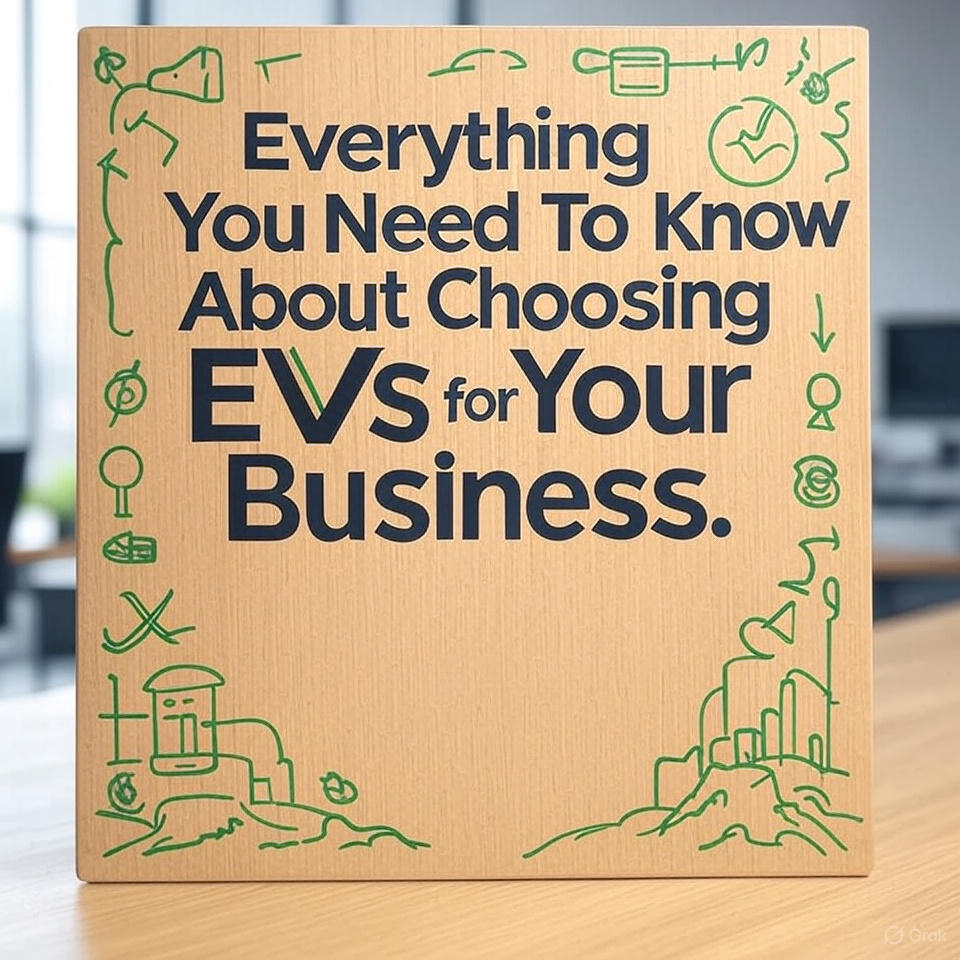As businesses across the globe increasingly focus on sustainability, the demand for electric vehicles (EVs) has never been higher. Incorporating EVs into your company fleet isn’t just a smart environmental move but also a cost-effective strategy in the long run. However, selecting the right EVs for your business requires careful consideration of several key factors.
Understand Your Business Needs
Before diving into the EV market, analyze your business operations. Consider the types of trips your fleet vehicles will make, their typical mileage, and the load they carry. For instance, if your company relies on long-distance deliveries, you’ll need EVs with a higher range and faster charging capabilities. Conversely, for short urban commutes, a smaller, more efficient vehicle may suffice. Mapping your usage patterns will ensure that you invest in vehicles that truly meet your business requirements.
Assess Total Cost of Ownership
While EVs often have a higher upfront cost compared to traditional gasoline vehicles, they offer substantial savings over time. Maintenance costs are generally lower because electric motors have fewer moving parts, and electricity is typically cheaper than fuel. Additionally, many governments provide incentives, tax breaks, and rebates for businesses that adopt EVs, further reducing the financial burden. Calculating the total cost of ownership, including charging infrastructure, insurance, and maintenance, is crucial to making an informed decision.
Evaluate Charging Infrastructure
One of the most important aspects of incorporating EVs into your business is planning for charging infrastructure. Depending on the size of your fleet, you may need multiple charging stations at your office or warehouse. Fast-charging options can minimize downtime and keep your operations efficient. It’s also worth considering the compatibility of the charging stations with different vehicle models to avoid future complications.
Focus on Vehicle Variety and Features
The EV market is expanding rapidly, offering options for every business need. From compact urban models to larger vans and trucks, you can find an electric vehicle suited to your industry. Evaluate the features that matter most, such as cargo space, safety technology, and connectivity options that support fleet management. Doing thorough research will help ensure your fleet meets operational and safety standards.
Explore Reputable Dealers
Finding a reliable dealership is critical. Local dealers often provide test drives, fleet discounts, and ongoing support. For businesses interested in a trusted brand, searching for Honda EVs near me is a great starting point. Honda offers a range of electric and hybrid models suitable for various business applications, backed by solid warranties and professional support.
Plan for the Future
Finally, consider your long-term goals. The EV market is evolving rapidly with innovations in battery technology, vehicle range, and charging infrastructure. Choosing vehicles that can adapt to future advancements will help your business stay competitive and environmentally responsible. Regularly reviewing your fleet strategy ensures that you take full advantage of technological improvements and regulatory incentives.
In conclusion, selecting EVs for your business is a strategic decision that goes beyond initial cost. By analyzing your needs, assessing total costs, planning infrastructure, and working with reputable dealers, you can build a fleet that’s efficient, sustainable, and ready for the future. As more businesses transition to electric, investing in the right vehicles today will position your company for long-term success.






